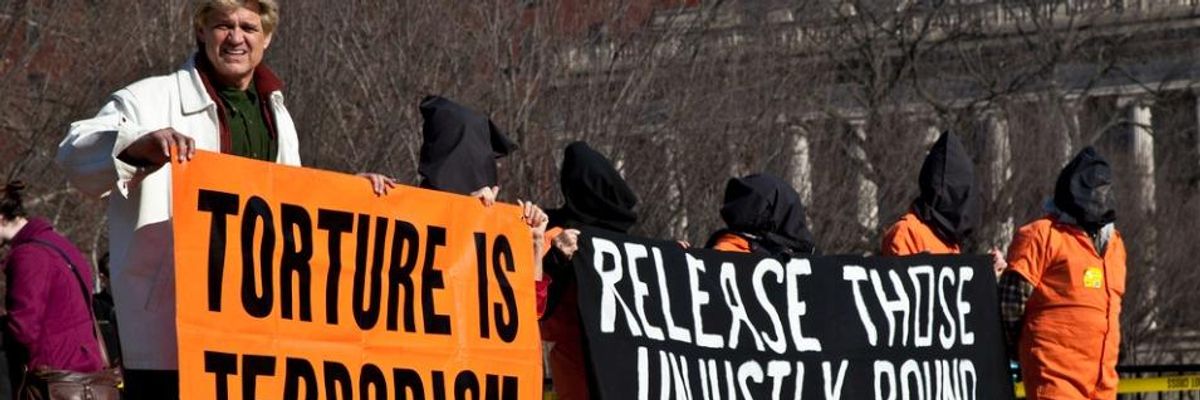On Wednesday, the United Nations Committee Against Torture began its review of the United States' record on torture--not only at the infamous Guantanamo Bay but closer to home, in our prisons, police forces, and immigration facilities.
The U.S. delegation acknowledged, "we crossed the line" on torture. Many of us believe that line matters, and that American values and law should define us as a country that stands against torture and cruelty. But as committee member Domah said, even "democratic institutions join forces to frustrate democratic principles."
Yesterday the United States gave its response to the dozens of questions posed about the treatment of those in U.S. custody and all individuals it fails to protect. And the response was incomplete, defensive, and disheartening.
Let's take three of the many issues the ACLU raised for this review. First, accountability for torture committed under the Bush administration. Committee members found U.S. responses on accountability and remedies for the "some folks" we tortured was wholly inadequate.
It's easy to see why. The U.S. failed to conduct a comprehensive and independent criminal investigation, including into the role of the architects of the torture program. While the U.S. delegation reiterated its commitment to holding those who torture accountable, it couldn't even provide assurances that the Department of Justice, in a recent inquiry led by Assistant U.S. Attorney John Durham, looked into the role of senior officials. Durham recommended full investigations be opened in two detainee death cases--Gul Rahman at the Salt Pit Prison in 2002, and Manadel al-Jamadi in Iraq in 2003--but the Justice Department closed both without charging anyone.
Second, prisons: Several committee members raised the United States' overreliance on solitary confinement--a practice on which the U.S. is an international outlier in a very bad way. Committee member Alessio Bruni told the U.S. delegation, with the practice of holding people for 30 days or longer in isolation, "you are leading [prisoners] to insanity." The response of the U.S. government, however, showed it to be in denial about the scope and nature of this problem. Government officials pointed to some practices that allegedly temper the isolation; but their suggestion that a radio, monthly phone call or a letter is enough is frankly ludicrous.
And finally, on U.S. immigration detention, committee chair George Tugushi asked the U.S. delegation how it could possibly reconcile its explicit use--as a "deterrent" --of family detention for the thousands of Central Americans seeking protection with its human rights obligations under international law. The delegation response was not to deny this policy but to clarify that detention wasn't the only deterrence strategy to keep refugees away. I don't think many felt better that the U.S. government has numerous strategies to prevent families fleeing for their lives from receiving protection.
The U.N. Committee Against Torture will issue its concluding observations and recommendations on November 28. The U.S. delegation said that test for any nation committed to the Convention Against Torture and to the rule of law was not whether it had ever made mistakes, but whether and how it corrected them. Let's hope our government embraces the call to do better.

